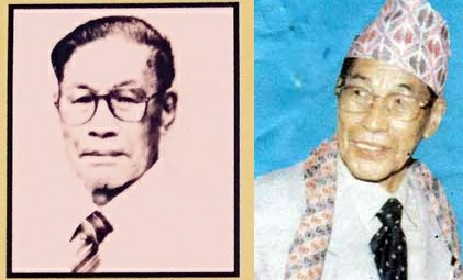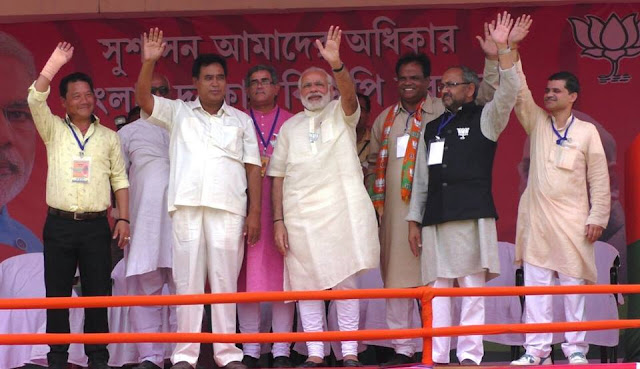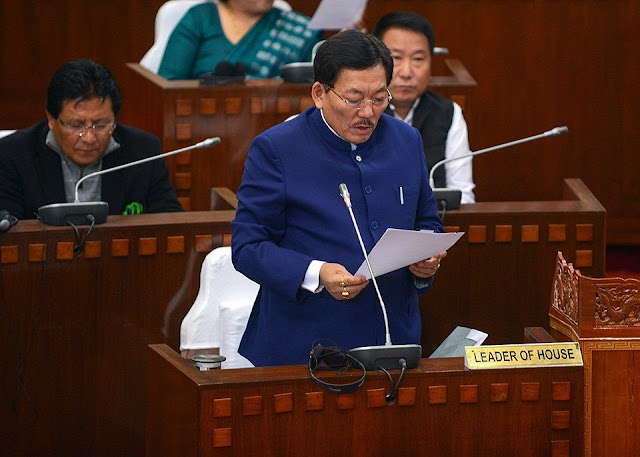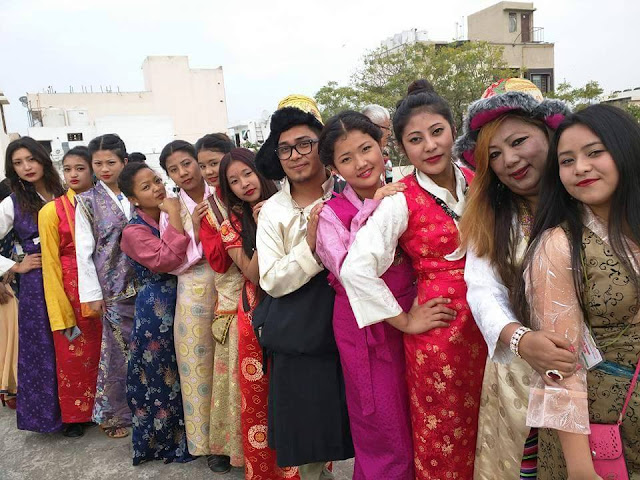Writes Upendra For TheDC
If we are to believe the Un-Gorkha CM of Sikkim Mr. Pawan Chamling, apparently the “Nepalis of Sikkim*” are a different breed than the rest of us mortals. He claims while they are purer version of Indian, rest of the “Indian Gorkhas” or “So called Gorkhas have emigrated from Nepal after recruitment into the army.” I applaud him for his knowledge and also his ability to call a spade a spade.
Indeed, “Nepalis of Sikkim” are not Gorkhas and that’s a fact... here are some reasons why
In 2014, a few months after TheDC was formed we got a request from a young girl studying at Lady Brabourne college, Kolkata. She was very upset when she contacted us, so we asked her what had happened? She had informed us that they needed to perform at a cultural show at their college for which they needed traditional dresses. These girls were aware that Sikkim House do have these dresses, so they had requested the Sikkim House manager to let them borrow the dresses for one day – they were declined, since the girls were from Darjeeling and not Sikkim. The girls explained to the Sikkim House manager that they had represented Sikkim in a basketball tournament only a few months ago, and had won the tournament for Sikkim, but the manager wouldn’t budge... “that was sports... this is cultural thing...” is what the manager’s final words were to the girls. Distraught the girls reached out to us, and thankfully we were able to assist them with the dresses.
 |
| Sikkim's Un-Gorkha CM Pawan Chamling |
In 2015, a girl from Sikkim was sexually assaulted and brutalized in Shantiniketan. We were outraged here in Darjeeling, so were the people over social media in Sikkim. However, when it came to providing on the ground support and solidarity, “Nepalis of Sikkim” were missing. In Shantiniketan protest marches were coordinated by PhD students from Darjeeling, so were protest marches in JNU, Jadavpur University, NBU and GJVM organized protest marches all over GTA region. TheDC on our part, coordinated “I Stand With My Sister From Sikkim” campaign in which thanks to Mr. Nawang and Mr. Nadong Bhutia we were able to get National level footballers from Sanju Pradhan to Bikas Jairu to Nirmal Pradhan to speak out against this heinous act. Nadong Bhutia from Kalimpong lead the campaign [details: http://bit.ly/1rHHaIO].
While all of this was happening elsewhere, nothing was happening in Sikkim itself. Shocked at the non-reaction, the editor of a leading online news page had private confided to us, “hamro manche haru k bhako hola esto... they are so indifferent... I feel ashamed...” Almost 20 days after the incident, a group of Bikers finally managed to organize a protest rally in Gangtok, and that was that.
Indeed “Nepalis of Sikkim” are not Gorkhas, for had they been Gorkhas their blood would boil over seeing one of their daughters so brutalized, sexually assaulted and blackmailed.
In October of 2015, around 40 students from Sikkim studying at the Himalayan Institute in Uttarakhand were brutally attacked by around 400 students from Jammu and Kashmir. Some of our readers informed TheDC that the students were living in fear of their life as no one had taken any action to protect them. We took the initiative to call up the institute Director, the Hostel in- charge, the Inspector in-Charge of Kala Amb police station and also the District SP and demanded action. Thanks to social media, following widespread outrage the Sikkim government finally intervened and the students were rescued [Details: http://bit.ly/1U6N0RK].
Thank God, Gorkhas in rest of India are unlike the “Nepalis of Sikkim” who couldn’t care if it does not concern their state. It is most likely that our initial demand for action and pressure we put on University and police authorities helped to protect the life of those students.
In March of 2016, a youth Suraj Subba from Manipal in Sikkim was found sleeping in a park in Delhi. After coming to know that the youth was from Sikkim, representatives from GYASA requested Sikkim House in Delhi to allow him to spend a couple of nights there till his travel arrangements could be made, Sikkim House in Delhi were untraceable and when we here at TheDC approached a Sikkim govt official to get the Sikkim House involved, the first question she asked was, “does he has “Sikkim Subject?” – we were left aghast. Never mind the fact that he was beaten up by drug addicts and all his belongings were looted, for Sikkim to help and intervene they needed to verify his “Sikkim Subject” status first.
Thankfully it was a Darjeelingey Puran Rai who runs “Namaste Cafe” stepped up and provided him with food and shelter, Mr. Arun Dubey, working as a Sales Director for a UK based-firm booked the tickets, and GYASA activists, most of whom are from rest of India, assisted Suraj throughout the process and Suraj reached home to Sikkim safely.
Indeed “Nepalis of Sikkim” are not like the Gorkhas, for we – the Gorkhas care and care deeply, even if it is someone entirely unknown and unrelated to us. Sikkim ma testo hundaina.
You can and I insist you must read this account of how another Sikkimese youth Tirtha Tamang committed suicide and how Sikkim House in Delhi didn’t help him when he needed the help most [http://bit.ly/1Vf7AVq].
No Gorkha would leave one of their own to die if they could save him or her in any way, but perhaps such are the specialities of “Nepalis of Sikkim” that they are just too busy, just too rich and just too pure blood to care for such trivialities.
As much as we may not like Bimal Gurung he has always been the 1st to speak out when Gorkhalis across India are threatened or harmed. He was the 1st to speak out in case of brutal rape and murder of a Gorkha in Manipur, he was also the 1st to speak out in case of Shantiniketan. He was also the 1st to speak out in case of recent brutal rape and murder of Gorkha girl in Assam. He has earned my respect in that regard. Even Darjeeling MP Shri. SS Ahluwalia – a “non-Nepali” hai, wrote to the MHRD and Home Minister demanding justice for our sister from Sikkim in the Shantiniketan case, perhaps that is the Darjeeling ko GORKHA influence which made him to speak out while the Govt of Sikkim was still sleeping.
What Mr. Chamling said yesterday was a statement of convenience to keep his vote banks intact, and as a shrewd politician he told the people of Sikkim out loud, what many of them believe to be true privately – that they are not Gorkhas, rather they are “Nepalis of Sikkim.”
However, I’d request the Hon’ble CM to kindly explain what does the word “Nepali” itself mean in reality? Hope he realizes that the very word NEPALI is derived from the country - NEPAL.
Mr. CM claims that “so called Gorkhas came to India and settled after joining the Army,” thus making all of non-Sikkimese Nepalis immigrants. For his political convenience he humiliated the rest of us, and I have no issues with that. However, I feel sorry for those who saw in him a world class GORKHA statesman, which sadly he is not.
During the Sikkim Legislative Assembly elections of 2014, Mr. Chamling had used “Sikkim lai Gorkhaland banauncha” narrative to scare people of Sikkim to vote against SKM, that was the first time I had realized how low Mr. Chamling can go to secure votes. However, in labelling the rest of Gorkhas as being immigrants for his own convenience, Mr. Chamling has shown that there is no end to his politics of opportunism.
I am not sure about the “Nepalis of Sikkim,” however here is an appeal to the GORKHAS of Sikkim, please brood over what Mark Twain had once said, “Politicians and diapers must be changed often, and for the same reason”…
.........................
*The phrase “Nepalis of Sikkim” is used to mock the statement made by Mr. Pawan Chamling, and is not the generalization of entire Sikkimese Gorkhas. Please note this is a reaction to his statement and not a commentary on the amazing Gorkhas of Sikkim... we are and we remain one FAMILY, despite what Mr. Chamling may think or say.
Jai Gorkha!!
Via TheDC
























